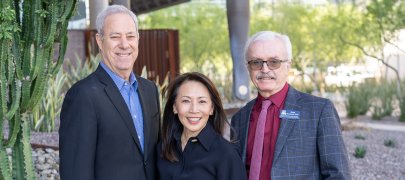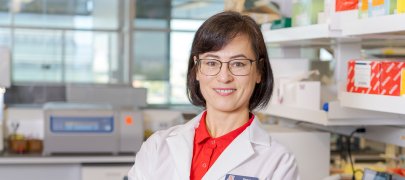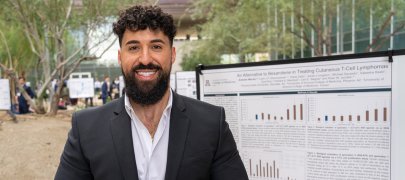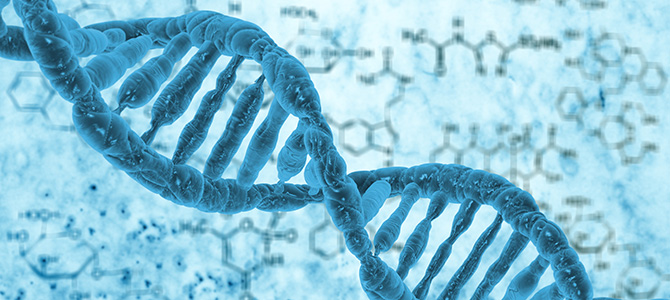
Largest NIH Grant in Arizona History Could Revolutionize Personalized Health Care

The University of Arizona received the largest National Institutes of Health (NIH) grant in Arizona history to revolutionize health care through precision medicine. The All of Us Research Program, in partnership with Banner Health, is among several organizations across the nation that will gather data of one million people from different backgrounds within the United States. By taking into account differences in lifestyle, environment and biology, the goal is to improve treatment and prevention of diseases.
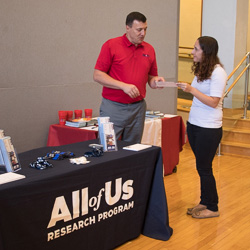
“Everyone can be the future of health by participating in this program,” said Barry Edwards, communication manager for All of Us at the University of Arizona and Banner Health. “All of Us is a nationwide effort to enroll a million or more participants that will benefit not only the faculty and students, but the community as a whole.”
The Arizona portion of the program recently reached a milestone when it signed up its 1,000th individual. In Arizona, the goal is to recruit 100,000 people over five years.
“For the College of Medicine – Phoenix, this is really what we do best, which is to be innovative and inclusive; and the fact that we are a new college, it allows us to be more nimble. The support from both institutions — the University of Arizona and Banner Health — has been extremely important in the development of this program,” said Rachele Peterson, executive director of All of Us at the University of Arizona and Banner Health.
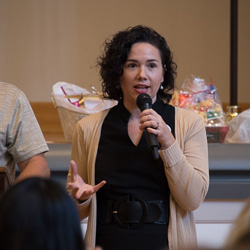
“Medicine is going to move forward as a result of this program,” Peterson said. “When medicine is moved forward, it can leave out certain groups, and that is something we cannot stand to happen. We want for our community to be involved because what works for one group may not work for another.”
All of Us has two enrollment sites in Tucson, five in Phoenix and one in Casa Grande with more opening soon.
It is simple to get involved. The first part consists of a consent process that is interactive, with coordinators and staff available to answer questions. This process includes watching a video series and taking an online quiz to make sure you fully understand what you are agreeing to. As long as someone is capable of providing consent, agrees to join the program, is not incarcerated at the time of consenting and is an adult, they can join the program. The consent process takes about 30 minutes and can be done online or in one of the All of Us clinics. In addition to providing consent, a participant must go to one of the enrollment centers at a scheduled time to provide one blood sample, a urine sample and measurements.
“For me, developing a path for better health is a passion, and my family is a key factor driving my work in this field. Our future generations deserve to have individualized medicine at the forefront of their lives. The All of Us Research Program will help the research community deliver on the promise of precision medicine. We owe it to the next generation to be among the million to participate,” said Valerie Schaibley, PhD, a participant of the study and administrator for the Center for Applied Genetics and Genomic Medicine at UA Health Sciences.
Physical risk is minimal, equivalent to donating blood at a doctor’s office. The other risk could be privacy.
According to Peterson, the program has very stringent data requirements and a very strict level of security. There are a lot barriers so researchers and people within the program do not know your identity. The information gathered and discovered within the All of Us Research Program will be shared with you through an online portal, but will not be given to any third-party without your consent, including your physicians and insurance.
“The opportunity to change medicine and health outcomes should be on the forefront of everyone’s mind,” Edwards said. “Personally, I feel there is an obligation to not only serve the community, but also aid in the advancement of approaches towards health discoveries.”
Media Contact:
Teresa Joseph
Phone: 602-827-2657
Topics
About the College
Founded in 2007, the University of Arizona College of Medicine – Phoenix inspires and trains exemplary physicians, scientists and leaders to optimize health and health care in Arizona and beyond. By cultivating collaborative research locally and globally, the college accelerates discovery in a number of critical areas — including cancer, stroke, traumatic brain injury and cardiovascular disease. Championed as a student-centric campus, the college has graduated more than 800 physicians, all of whom received exceptional training from nine clinical partners and more than 2,700 diverse faculty members. As the anchor to the Phoenix Bioscience Core, which is projected to have an economic impact of $3.1 billion by 2025, the college prides itself on engaging with the community, fostering education, inclusion, access and advocacy.
